Kashmiri student languishing in Indian prison for past seven months
Family of the 14-year-old, who unknowingly went into neighboring territory, desperate to hear from him
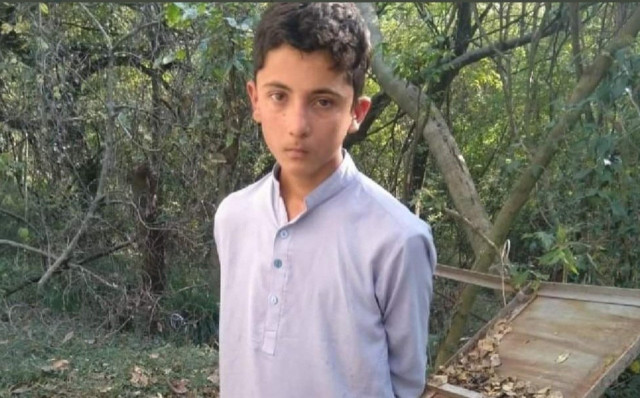
More than seven months ago when Abdul Samad, a resident of Azad Kashmir, accidentally crossed the Line of Control (LoC) he had no idea about the ordeal he and his family were going to be put through.
The 14-year-old, Abdul Samad, crossed the LoC by mistake in November last year and now seven months later, his family is yet to hear from him or about his release. Back in April 1974, Pakistan and India, signed an agreement to release such prisoners from jail who had not committed any crimes and had crossed the LoC by accident.
Under that agreement, Abdul Samad, who is in 9th grade, should have been home by now but his uncle Arbab Ali laments they have not even been able to speak to him on the telephone. “He crossed the LoC on November 18th, trying to catch his pigeons and has had to pay such a heavy price,” informed Arbab, who is a taxi driver in Islamabad. Arbab informed that, Samad, whose nickname is Asmad Ali, was raised by his grandparents after his mother died early in his life and his father remarried. “They have been waiting for months now just to hear his voice but nobody has allowed our Asmad to even contact us,” a visibly torn Arbab said, “we are losing hope and no one is doing anything.”
Abdul Samad’s plight is shared by others on both sides of the border. Twice a year, Pakistan and India exchange lists of prisoners and according to the details released on January 1, 2022, there are 628 Indian nationals incarcerated in Pakistani jails, while 282 Pakistanis are languishing in Indian jails.
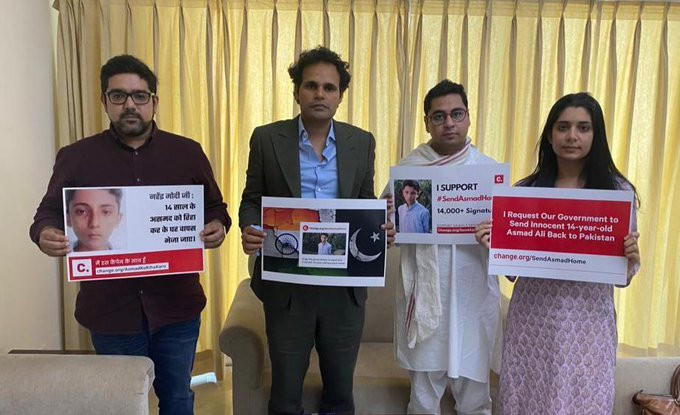
The Express Tribune learnt that there were several obstacles to the return of those who cross the border by mistake. Firstly, the mutual tension between the two countries, which makes any person who crosses the border illegally a threat. Secondly, those who are caught often misrepresent their names and addresses out of fear, which makes it difficult for local law enforcement individuals to verify their citizenship. The citizenship verification process, carried out by local police officers, is a slow one and often marred with negligence.
Rahul Kapoor, an Indian human rights activist, who has filed an online petition for the release of Abdul Samad, when inquired about his status, said that his online petition had received thousands of signatures and had gotten Abdul Samad access to the consular. “Abdul Samad was brought to the Amritsar Central Jail from Ranbir Singh Pura, a center for juvenile prisoners in Indian occupied Jammu and Kashmir. On March 4th, members of the Pakistan High Commission met Abdul Samad at the Central Jail in Amritsar.”
When asked about the visit, the Express Tribune was informed by sources at the Pakistan High Commission in New Delhi that the details obtained after meeting the child had been sent to Pakistan to verify the child's citizenship; however, the Interior Ministry had not yet sent its report regarding the confirmation of the child's citizenship.
Given Abdul Samad’s ordeal, Rahul is of the view that there should be an agreement between the two countries for the immediate release of those who cross the border by mistake, especially children and the mentally handicapped.
Sarim Burney, a human rights activist in Pakistan, commenting on the plight of those like Abdul Samad, said that the two countries should form an independent commission consisting of retired judges and human rights representatives to ensure the release and repatriation of prisoners who have completed their sentences, including those who mistakenly cross the border. “The animosity between the two countries is so great that any person caught at the border is instantly labeled as a spy. There are still an unknown number of prisoners in both countries who have no record; we must think about what their families go through on a daily basis,” Sarim remarked while talking to the Express Tribune.


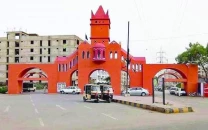
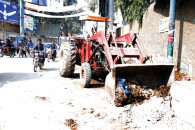








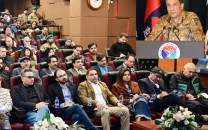






COMMENTS
Comments are moderated and generally will be posted if they are on-topic and not abusive.
For more information, please see our Comments FAQ